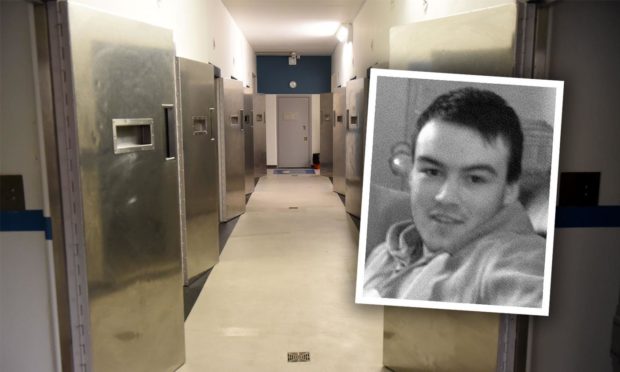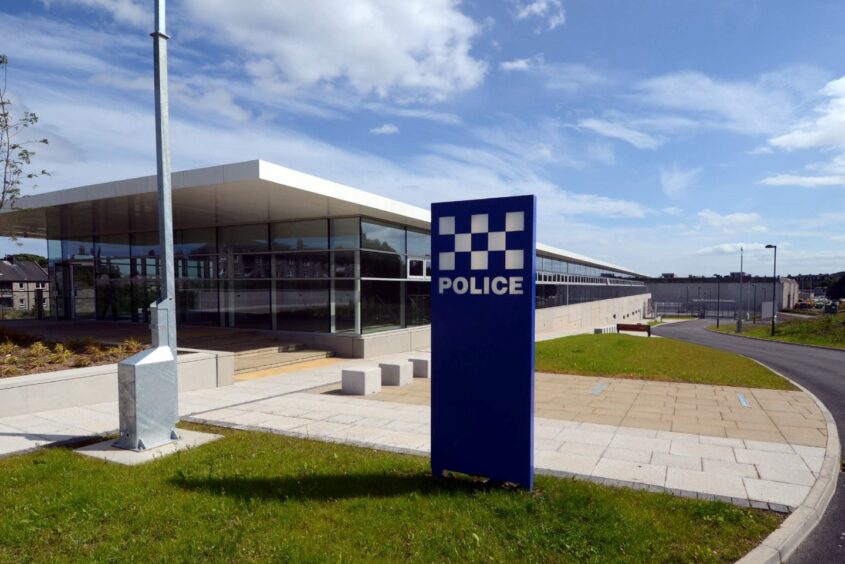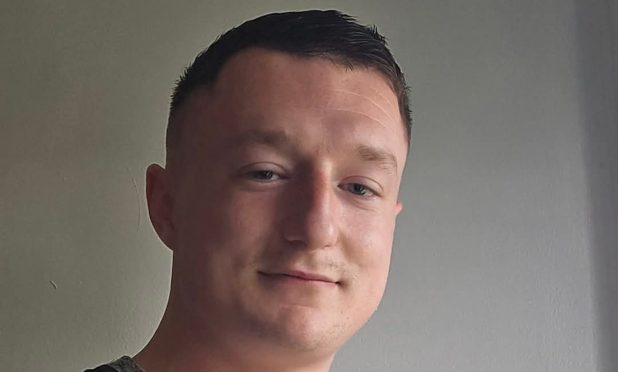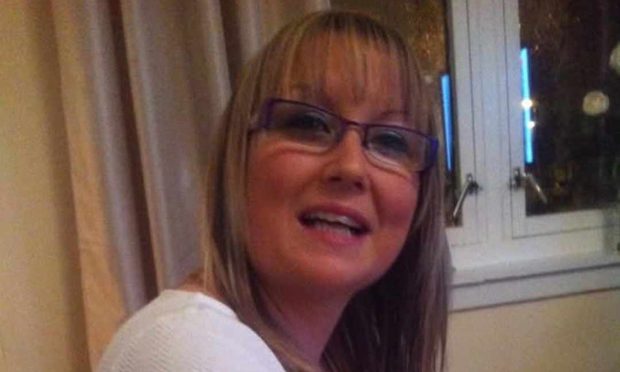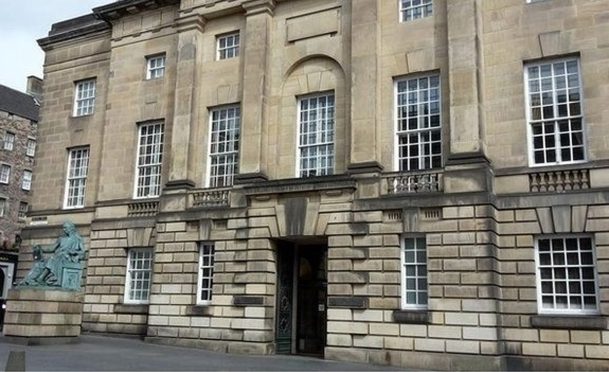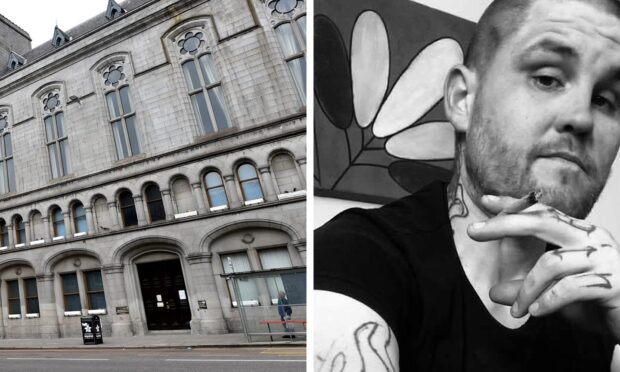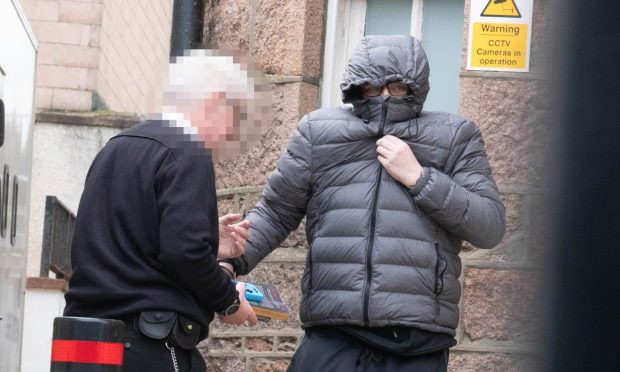A senior officer rejected claims that an Aberdeen police station was “chaotic” on the day a man died in custody, an inquiry heard.
Inspector Mark Fleming finished giving evidence in an ongoing hearing into the death of Warren Fenty at Aberdeen Sheriff Court.
The Fatal Accident Inquiry (FAI) is probing the death of the 20-year-old, who discharged himself from hospital before his arrest in June 2014.
Police detained the patient at Aberdeen Royal Infirmary after NHS Grampian treated him for a drugs overdose of methadone the previous day.
Evidence considered by the FAI revealed that Mr Fenty was a “high risk” prisoner on suicide watch and required welfare checks every 30 minutes.
But three checks were not carried out over a one hour and 45 minute period, and others were “not of a satisfactory standard”.
Inspector Fleming told the court he agreed that the opening of Kittybrewster Police Station’s new custody centre did not get off to a good start in the week of Mr Fenty’s death.
Solicitor Peter Watson, on behalf of a number of police officers involved in the case, asked him: “Were you aware of any particular pressures on that particular day?”
The inspector responded: “Other than it being busy, no.”
The court heard alarms were ringing and couldn’t be switched off, certain keys were not working for doors, CCTV was not functioning properly and a fingerprint scanner was faulty.
Mr Watson questioned the inspector: “Would that add to the pressure on staff?”
“Not necessarily, no,” Inspector Fleming said. He added: “Not with regards to care and welfare and cell visits.”
Solicitor Gordon Williams, representing other police officers, put to the inspector: “The opening few days seemed fairly chaotic.”
Challenging and frustrating
Inspector Fleming responded: “I found it challenging. I found it frustrating but certainly not chaotic.”
Mr Williams followed up: “What would you say to the suggestion that Kittybrewster opened too soon – it wasn’t ready operationally for business?”
“I wouldn’t necessarily agree with that,” the inspector replied.
“Yes, there were technical challenges, but they should not have detracted from the basics of the care and welfare visits.”
Sheriff Morag McLaughlin sought clarification of comments made by the police officer.
She told Inspector Fleming: “The inquiry has not yet seen the [custody] CCTV, but you have.
CCTV footage doesn’t imply chaos
“You disagreed with a situation put to you that the situation at Kittybrewster on that night was chaotic, but you said that having reviewed the CCTV you did not regard the situation as being chaotic, and I just wondered if you might expand on that please.”
The inspector said: “To consider a custody centre to be chaotic would almost infer that it was disorganised, staff were unware of their duties.
“The footage doesn’t imply that, and the consistency of the checks on Mr Fenty are certainly within an acceptable timeframe.”
He explained that, although all other visits were “not spot on every 30 minutes” they were “within an acceptable timeframe” – apart from three consecutive missed checks.
Better use of resources
Inspector Fleming added: “So I don’t agree with the term that it was chaotic.
“There could have been better use of the resources with regards to prioritising what staff had been deployed to do.”
Robert Vaughan, on behalf of another officer, heard from the inspector that “additional pressures were almost human-created”.
Mr Vaughan said to him: “We’ve heard from Constable Dawson. Unless he’s being called a liar, he said it was chaos and he had a 10 minute break in a nine hour shift.
“What do you say to that?”
A busy evening with sufficient staff
The inspector responded: “In my opinion it was not chaos. It was a busy evening, and the staffing profile was sufficient with regards to the number of people in custody.
“There was a heightened stress because it was a new facility. It was the first week that it was opened. There was the human element of reluctance to change.”
Inspector Fleming added: “To say it was chaos, I would disagree with that.”
Solicitor Kate Bennett, representing Mr Fenty’s family, called a new witness, Dr Michael O’Keefe, to give evidence to the inquiry.
The honorary senior lecturer in forensic medicine at Glasgow University was instructed to prepare an opinion paper for the inquiry.
Expert witness
Speaking about his experience, the expert told the court he provided services to the former Strathclyde Police as a forensic medical examiner from 1980.
Between 1986 and 2014, Dr O’Keefe worked as a forensic medical advisor in relation to custody care, procedures and protocols.
He told the court he delivered training lectures to police officers and police custody security officers.
Dr O’Keefe said: “The name of the presentation was ‘care of detainees: a shared responsibility’ and I highlighted to the custody officers, and the police custody supervisors that it was shared care between the police surgeon or a healthcare professional and the police custody supervisors and the police officers.
“By that, I meant we were jointly responsible for the provision of appropriate healthcare for detained persons.”
The inquiry, being held virtually before Sheriff Morag McLaughlin, continues.
